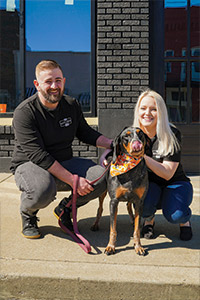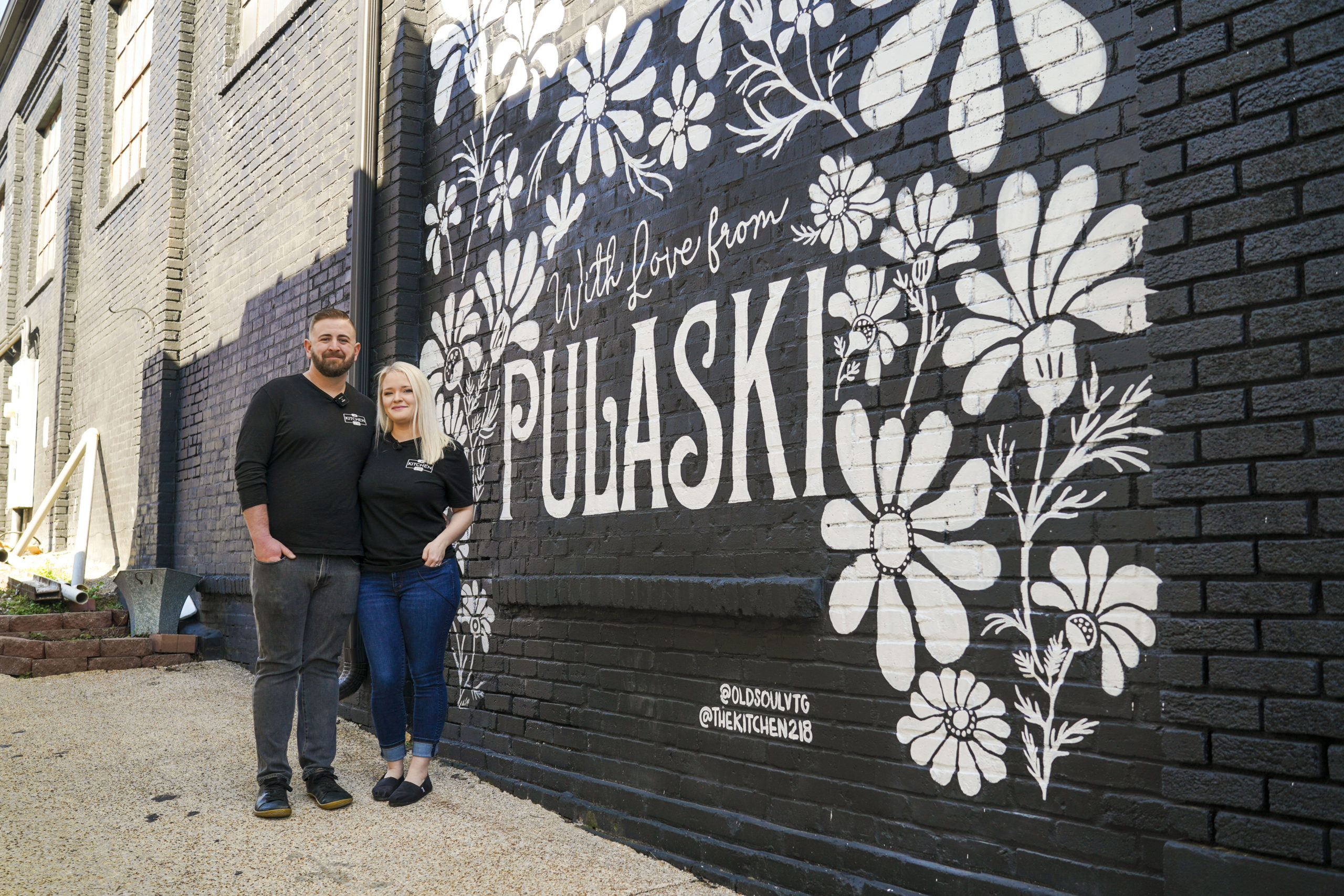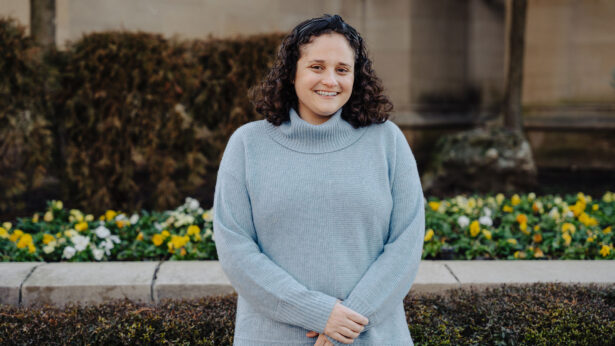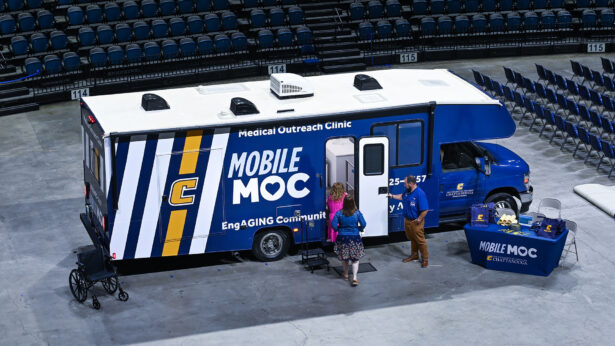This could be a restaurant start-up story. But it’s not really.
To be sure, after three years of work, UT Southern graduates Jake and Michelle Pfeiffer have opened Kitchen 218, a college bar, in Pulaski’s downtown. Televisions line the walls made from slices of the second floor’s former joists and sandblasted tin tiles cover the dining room’s ceiling. The menu of burgers, pimento cheese wontons, wings, flatbreads and more caters toward a bar crowd, as does the second-floor space for live music.
Yet it’s more than that.
More than three years ago, Jake (Southern ’17) planned to move to Nashville and was on his fifth-round interview with a large finance company when he realized it wasn’t the life he wanted. The interviewer asked, if he saw a problem he knew how to fix, would he fix it or report it to his boss first? Jake responded he would fix it, and the interviewer told him that wasn’t the company’s culture—he would need to report it to his boss first.
Jake walked away from working in a cubicle, living in a studio apartment and not being able to make his own decisions. Instead, Jake turned to his mentors, his passion for his hometown and a career of cooking for others. He decided to open his own restaurant.
“I always thought Pulaski had a ton of potential,” he says. “Out of my friend group, I was the only one that believed that. Everyone else was like … .”
“You’re nuts and left (Pulaski),” volunteers Michelle (Southern ’22).
“You’re nuts and left,” Jake echoes.
Jake’s friends could be pardoned for thinking so. The town had lost 3.5 percent of its residents from 2000 to 2019. The population looked destined to dip below 7,000 and continue falling.
Yet, it hasn’t.

Instead, the 2020 census shows a new high of almost 8,400 residents for the town. And the Pfeiffers point to one event two years ago that resonated within the town and gave them light while trying to open their restaurant during the dark pandemic time: the announcement of UT’s acquisition of Martin Methodist College, creating UT Southern.
“I really think it is the greatest thing that could possibly happen to us at this time, for UT to come in and help push this movement toward revitalization,” Michelle says.
“The UT announcement just ignited a new spark in this town,” Jake says.
Now he’s continuing to fan the flame by buying beef, vegetables and bourbon peach jam from local farmers. The pimento cheese on the menu comes from a local attorney’s family recipe and is made and distributed by a local company. Jake sees it as creating microeconomies that benefit local people.
That philosophy continues through paying the waitstaff $7.25 per hour plus benefits instead of the industry norm of $2.13 and no benefits.
“Studies have shown time and time again, these companies that are paying their people better and giving them more time off and letting them have a better work environment are showing record profits,” Jake says. “I believe it.”
What Jake has believed in, he’s managed to make happen. At 15, Jake convinced his parents to buy the burned shell of Corner Pit BBQ in Bryson and then helped them renovate and run it for 13 years.
“Jake’s always had an interest in the restaurant business since he was little,” his father Bill Pfeiffer says.
“We got to talking about it, then digging around on the web. I found the Pit and started thinking we could open it up and get the community to come back down here again.”
Jake had a similar vision for Kitchen 218, transforming a building empty for 10 years into a space to gather in Pulaski and the wider community, even if it meant selling his 60-acre farm outside of town to help fund it.
“He’s always been really, really determined, and he has never second guessed himself, not once, even when family has, friends have,” Michelle says. “I’ve trusted him the whole way.”
That passion also convinced Josh Kirkpatrick to invest in the restaurant.
“He sold me so hardcore on his character, vision and love of community,” he says. “I didn’t even eat his cooking until we had the kitchen at the restaurant finished.”
So this isn’t a restaurant start-up story. Not really. It was never just about the restaurant.
“Restaurants bring people together. It’s a gathering place. It’s community,” Jake says. “I love just seeing everything happen because I think all of the best things in life happen around food.”
But it’s also about a couple choosing to stay in their community to help revitalize it. As Michelle says they tell their friends, they can bring the brewery, the live music, the cigar bar that they enjoy elsewhere to their hometowns.
“I think a lot of young people second guess their ability to make that happen, their ability to open businesses. It’s hard. It is really, really hard, but it’s worth it,” she says.



